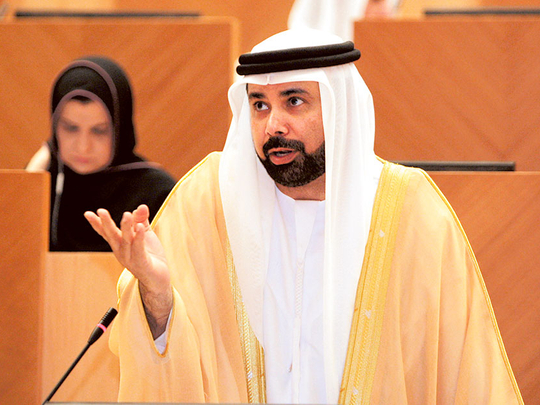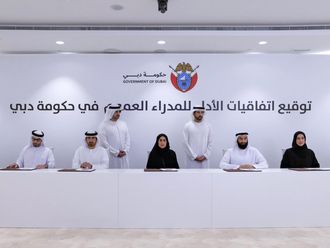
Abu Dhabi: The UAE, named the 12th most competitive nation globally for 2014-2015 by the World Economic Forum, is on track to have a federal transport law this year, a top official said on Tuesday.
The new law would pave the way for more than Dh80 billion of investment in railroads and metros, Abdullah Bel Haif Al Nuaimi, Minister of Public Works, told the Federal National Council.
He said that 70 per cent of the federal transport rules covering safety and operational standards has been completed and “we are on track to complete the legislation this year”. Al Nuaimi also chairs the National Transport Authority.
“We want to make the UAE a global hub, ranked among the top 10 countries in terms of availability and quality of transport infrastructure by 2021,” Al Nuaimi said as he answered a question by Ali Eisa Al Nuaimi, a member from Ajman.
The UAE was ranked first regionally and 14th globally in terms of availability and quality of transport infrastructure by the Global Enabling Trade Report 2014 released by the World Economic Forum (WEF).
The minister said the UAE came among the top 14 economies in terms of the quality of transport infrastructure and connectivity.
“The government is committed to promoting the UAE’s image as a regional and international centre of trade by encouraging international investment and participating in the implementation of projects at all levels in this sector. Gradually and, starting from next year, the UAE will endeavour to achieve the goal of being among the world’s top 10 in transport infrastructure well ahead of 2021,” Al Nuaimi said.
Ali Eisa Al Nuaimi said he hoped the law will make it easier for foreign companies to enter the market to boost the national economy, fight congestion and protect the environment.
The first phase of the UAE’s railway, an industrial line to send cargoes of sulphur from the Shah sour gasfield to Habshan, is operational and on trial since September last year.
In the second phase, the UAE plans to lay 628 kilometres of track connecting major cities and industrial hubs, including Khalifa Port, Musaffah, Dubai Industrial City, Jebel Ali, and Fujairah. That domestic railway would link up to an international railway network connecting all the GCC nations.
The GCC is in the process of creating a central transportation authority to deal with immigration, tax and customs issues that would arise with a regional railway system scheduled to launch in five years.
The UAE is investing more than Dh80 billion in five different railway projects overseen by the National Transport Authority.
Etihad Rail, Abu Dhabi Metro, Abu Dhabi Light Rail, Dubai Metro and Al Sufouh Tramway projects were designed to boost the national economy,
Members of the FNC believe that developing the national railway network will benefit the national economy and make it a centre of transport and logistics in the region, and land passenger and freight transport network more sustainable.
Other benefits that will come with the railways are a reduction in road accidents, congestion and carbon emissions.












